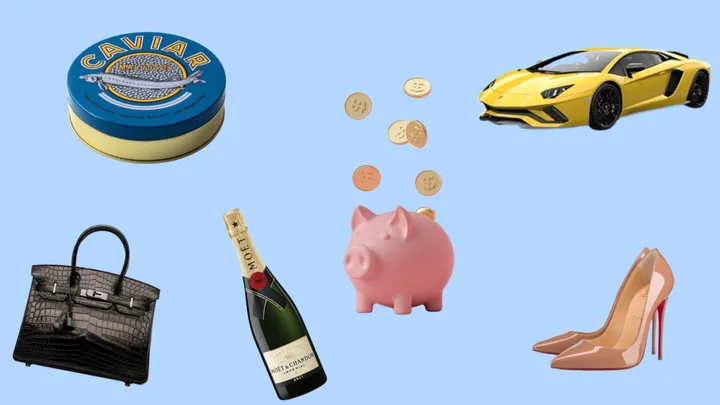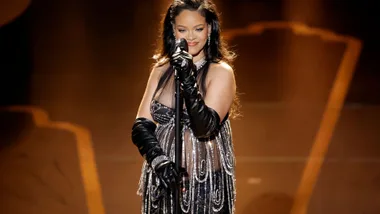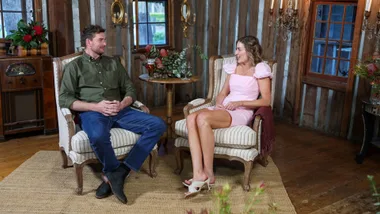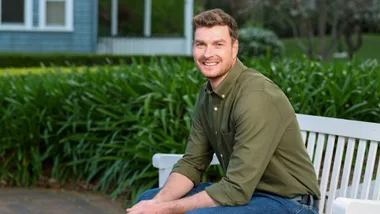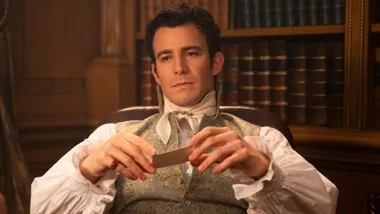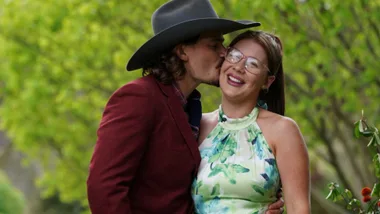This money diarist puts paid to the belief that money necessarily equals contentment. Coming from a wealthy family for whom money was never an issue, her childhood was a life of privilege. But after leaving home and school early to start working in fashion, she got herself into significant debt. Now married, at age 24, she’s learning how to navigate life on her own terms, manage her finances and have healthier relationships.
Tell us about your money story.
I was adopted by a really well-off family when I was about 18 months old. Growing up, everything was pretty excessive. I never really went without and I would have had more than the average person, which was great, I guess. I went to a private school and did all the extracurricular activities. But when I turned 18 and was allowed some more freedom, I got my own credit card and quickly got myself into about $17,000 worth of debt. I wasn’t working a hugely well-paying job at the time, only about $50,000, so compared to my salary, the minimum repayments were huge.
How did you rack up $17,000 in debt?
I’d been so used to having everything and had this mentality of, if I want it, I can have it and there are no ramifications. Even to the point where I didn’t realise you had to pay debt off! My dad was so generous when we were kids – everything we’d put in our bank account each year, he’d double. I look back now and I’m just annoyed at myself. I mainly spent money on silly things, like clothes and handbags and expensive holidays. I was lucky I got to study in France for a year, so that’s where a lot of my debt came from. I also love art and my house is adorned with art that I really couldn’t afford to buy at the time.
But things changed? How?
I started a relationship with my now husband and, eventually, I told him. He comes from a completely different financial back ground, had grown up with the bare minimum, so he taught me how to use my money better and to be a bit more mindful.
One day, when we were with my family on holiday in New Zealand, my husband said, I don’t want to see you struggle anymore. I’ll help you clear your debt and we can start fresh together.
I’d already paid down a big portion of the debt and he wanted to help me clear the slate. He wrote out a little contract that said, ‘This is a gift. If ever you feel like you want to pay it back and you can, that’s up to you. But I’m not expecting it.‘
Oh, what a dream guy!
It was incredible, but at the time it was hard to accept, because I was locked in this pride bubble. I was in such a weird position. I’d been given everything, but had thrown a large portion of it away, and then found myself being helped by someone who’d grown up with less than me. I just felt so uncomfortable.
But he was so kind, so we just started from ground zero. We put together a plan; what we wanted for the future. I should also say at this point that I have a trust fund, so part of the debt will eventually be paid out of that, but I can’t access it just yet.
Tell us a bit more about your adoption.
I was actually born in Fiji and adopted when I was 18 months old. My parents were there on business and I guess they decided to bring back a souvenir!
They weren’t planning on adopting. My mum was pregnant at the time, but she had a miscarriage. They were in Fiji for two years and then the coup happened. My dad had to come back to Australia, but my mum stayed on for a bit. She was helping out at a charity one day when my biological mum came along with her friend and little-baby me. My mum was totally entranced. She says that within two days of seeing me she just knew she was meant to be my mum.
And your biological mum agreed with that? Do you have any relationship with her now?
My biological mum needed the money and it took a financial burden off her shoulders. I have other biological siblings in Fiji,
but I don’t have anything to do with them or my birth mother. I am a lot younger them and my birth wasn’t planned.
When I was brought back to Australia, most of my new family accepted me. But a few wondered about the money, since my family’s very wealthy, and whether I should be included in the wills and that sort of thing. My great-grandmother was really wealthy and she left a lot of money to her sons. My grandmother decided that each grandchild would have a trust fund and she’s been investing on our behalf for years.
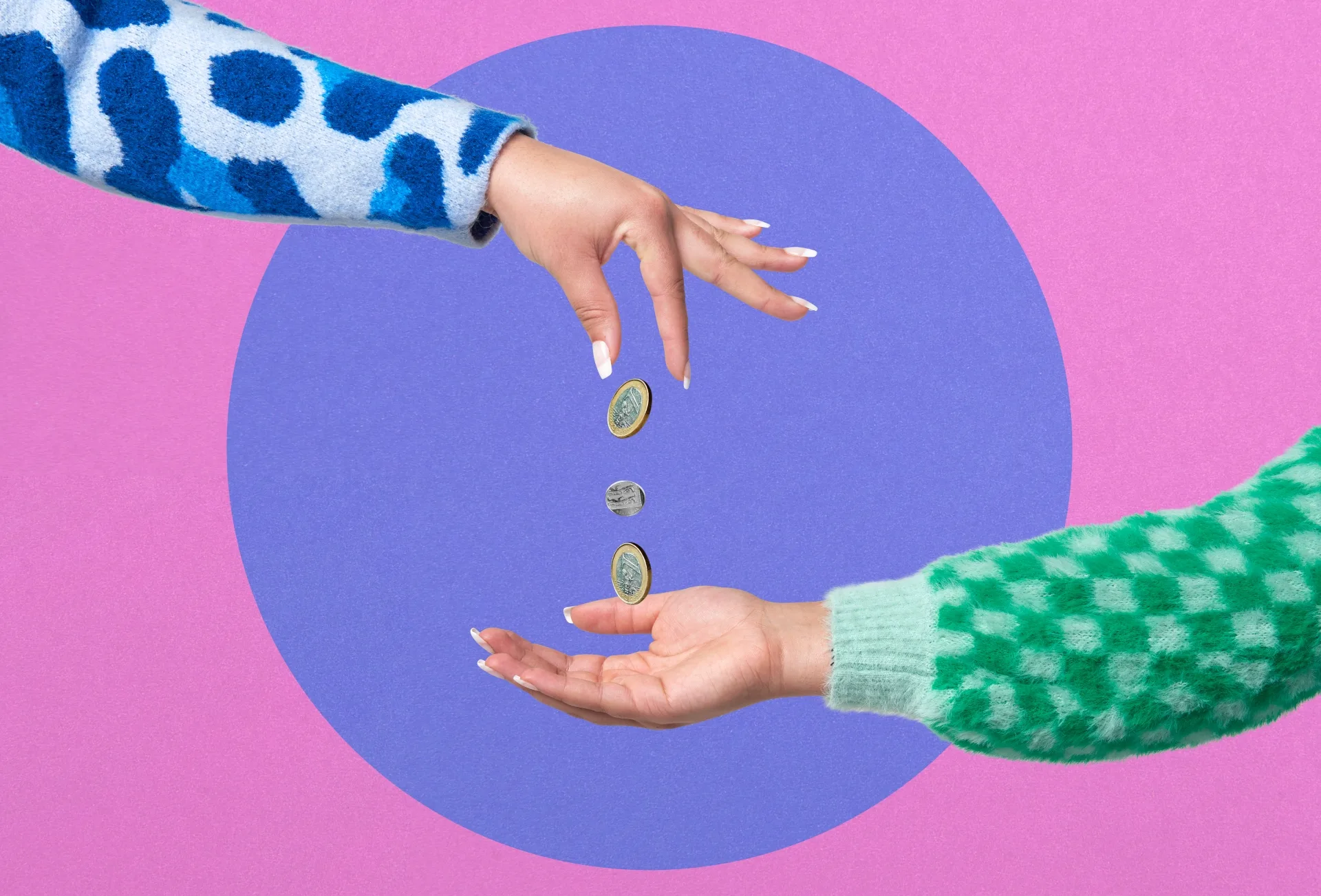
Oh gosh, that sounds messy. Did that make it hard when you were growing up, to ask your parents for things because you were adopted?
No, no. They never made me feel different. I’m one of three kids and it’s always been an equal playing field. If anything, they gave me more. They were probably overcompensating. I’ve had a credit card forever and it was always just a normal part of life. I didn’t really understand how they worked.
My grandmother is a baller and that’s why it makes me feel so ashamed to have gotten myself into all that debt. The way the trust is set up is probably a good thing. I can’t access the trust fund until my nan dies. And then I have to put a proposal forward to my parents. My dad is the executor, so he’s the one who’ll release the funds, but only for investments.
Five years ago it was about $800,000, so it’s probably sitting at just over $1 million now.
So it sounds like things changed once you met you partner. What happened between your partner helping with your debt and getting married?
Just a lot of education, really! We worked really hard and we managed to buy two properties in the same year as getting married. And we got married overseas, which was amazing.
Most of our friends were really happy for us. But it’s hard some times because you have to watch what you say. It’s not relatable right now saying how much you spend, because a lot of people are really struggling. You can’t just blurt shit out.
So has it negatively impacted your friendships?
As my parents have gotten wealthier, it’s become more and more obvious with cars and boats and that sort of thing, and it’s become difficult to maintain some friendships because some people can’t help comparing – they want you to sit just above or below them. So I find that really awkward.
Even when it comes to a job, I have actively decided not to work for my parents’ company. But the moment you tell people where you live or what you do on the weekend, they can’t quite believe it. You feel like an imposter, weirdly. So I usually tone it down.
It totally makes sense. But it sucks that you have to tone yourself down to make other people comfortable.
Yeah, there’s a bit of that. And I’m only 24, so some people get really irked.
You said you didn’t want to work for your parents’ company, so what do you do and how much money do you earn?
I do fashion design and I earn about $95,000 plus super. I left school in year 10. I was lucky – you know how they do work experience? I was offered a job with a fashion house, so I did that and they paid for my training, so fashion’s all I know, really.
That makes a lot more sense about your debt being a lot of designer fashion – it’s quite common in your industry. I feel there’s a theme here.
Oh yeah, there’s a big one. You should see my handbag collection!
Alright, tell us about some of your big money goals.
We want to buy our big family home. We’re currently in a three-bedroom house in Sydney, but we want to buy a five- to six-bedroom home on or near the water. We’re currently looking at something around $3 million, but it’s a five-to-six year goal.
How are you going to finance that? How much does your partner earn?
He earns $200,000.

Okay, that’s great. And will you need family support as well?
With the equity in our homes, we should be able to use that for the deposit, but we’ll also probably look at applying for a portion of my trust to be released.
What about other goals? Holidays? Babies?
I want both! I’ve also done some modelling. I took a break from that during COVID, but I’d like to get back into it next year.
How exciting. Tell us about your investments.
My husband and I have two properties. I count the property we live in as an investment, although I know it’s not technically one, but we bought it purely for investment reasons. The original goal was to stay in it for five years, then buy our big home. But at the same time, we wondered, with all the government grants, what else can we do? My husband’s in engineering, so he’s very good with numbers. He thought we’d be better off if we had two properties instead of just one big one right now. So we’ve got where we live now – the loan’s about $600,000 on that place, but it’s worth about $950,000. And our investment property – the loan is at $580,000 and that’s worth just under $900,000. And we also have about $25,000 in shares.
What process did you follow to pick your shares?
It just started as a hobby. It seemed everyone was doing it, so I signed up to an online platform that my friends recommended – their market round-ups make it really easy. I’m mostly invested in ETFs. Once they’ve grown to a certain target, after taking into account any capital gains tax, I sell up and transfer the proceeds into my bigger portfolio.
And what about debts, other than the mortgages?
Instead ofpaying stamp duty on our investment property in NSW, we opted to pay land tax, so we hold a debt to cover that – around $47,000. I also use Afterpay, but only for gifts and clothing. I’ve got about $500 sitting in that.
What do you think your best money habit is?
Probably, that I’m organised. When I need to buy something – birthday presents and that sort of thing – I’ll make sure I get it at a really good price.
And your worst money habit?
I think it’s linked to being raised in excess in a wealthy house hold – basically spending too much, although that’s mostly in the past. My parents used to pay for everything; bills, my car, my phone. But once I started working, they told me I had to start buying my own clothes because they’re expensive. And same with artworks. So I was spending like I used to, but only earning $50,000 and that’s where the debt started.
Then, there’s this understanding in my family that once you’re married, it’s all on you. So now that I’m married, I have to be more responsible. But it’s hard, because my parents are still spending like they’ve always done. We’re going overseas with them next year to Japan and they offered to pay for everything except for the accommodation. Which sounds great, but if I pay for accom modation where they’re staying, it’ll be like $8500 for four nights!
So how do you have these conversations with them?

It can be icky. There are times where I just can’t be bothered to even discuss it because I just feel uncomfortable and I know they’re going to want to pay for it if I say something. And yeah, that is privilege and I’m incredibly lucky to have parents in that position, but sometimes you just feel embarrassed. I don’t want to have to explain it to them like I’m a five year old.
So they’re paying for everyone to fly business class when we go to Japan, but because I’m now married, they said I can either share my ticket fare with my husband and we both fly economy or stump up the extra to go business class. Which feels weird, because it’s not like one extra business class ticket would impact them. I mean, they pay on points, they don’t ever pay for flights. So it’s confusing. My brother literally didn’t work for five years and only just started working and he’s only ever flown business class.
It sounds super uncomfortable around your parents because of these little things. Maybe they’re trying to teach you some financial independence but in a really weird way?
I don’t know. I brought it up with my therapist and she thought it was bizarre.
Is this something you knew would happen if you got married?
I did know. I just didn’t know how terrible it would feel. And my mum doesn’t really get it. For example, I’ve been going to the same skin therapist as my mum forever. But then I was like, I actually can’t afford that, it’s $250 an hour. So I cancelled my appointment, but later, Mum asks how my facial was. So I tell her, well no, I didn’t go to her, I can’t afford it. And she says, oh, you’re so cheap! And I want to be like, I don’t have your income! But it’s too hard.
If my sister’s in the room, we’ll both give each other a look and I’ll just roll my eyes. Sometimes it’s just not worth the argument. I know it’s such a small insignificant thing, but it adds up, you know? It’s not just a one-time thing where your mum calls you cheap because you changed your facialist, it’s like, your entire life style has changed. So the hurt and discomfort kind of compounds. It just goes on and on and on.
So how are you managing now? Are you learning to live within your means?
I find holiday seasons awful. I always overspend, there’s just an expectation that you will in our family. But I just need to budget more or put more money towards that and be more mindful. But in regards to the other things, I’m learning to find cheaper alter natives that I enjoy.
Do you still think you’re a B minus? If so, why, and how would you change to get to an A?
Yeah, I still think I’m a B minus. I need to change my relationship with money – and my relationship with people with money – so I can feel more confident in my decisions and feel at peace with them. I know that I overspend because sometimes I feel like I have to please people. I want to eventually get to a point where I don’t have to feel that way. That’s when I’ll be like, okay, yeah, you’re moving up, girl!
Money Diaries, Penguin Random House Australia, is out now.
